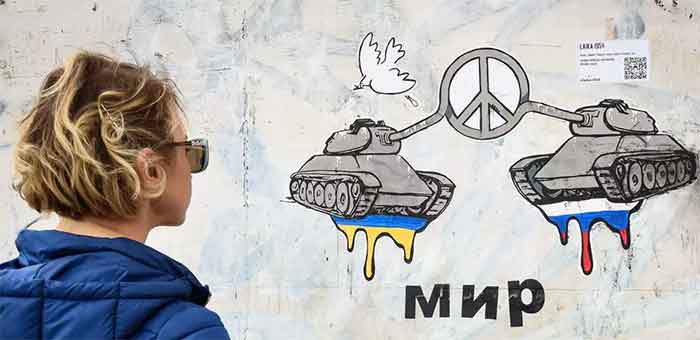After the cold war shadow of several decades, the best hopes of ending superpower rivalry appeared around the early 1990s. The assurances given to Gorbachev by top western leaders appeared (deceptively, as it later turned out) to lead in this direction. China, it appeared, could not just live with the increasingly globalized world but prosper in it. United Nations agencies published glowing reports about the ‘peace dividend’—with lesser need for militarization much more resources would be available to end deprivation and hunger at world level.
The sad story of how all these promises were eroded over the next three decades is well-known. While Russia (even under Putin initially) was willing to accept a relatively junior position in the west-led world order for several years, the denial of the option of protecting its self-respect and essential national interests led it reluctantly to again prepare for a confrontation role with the west (which has been irrationally hostile towards Russia for over 100 years now– since the Russian Revolution). China also learnt that its assigned role in globalization led capitalist growth path was acceptable (to the west) only till its growing economic and technological strength did not challenge western supremacy.
So it was that big power rivalry returned to haunt world peace in a most critical phase of earth’s history when international peace and cooperation are most needed to together sort out the life-threatening environmental crisis. With the outbreak of the proxy Ukraine war, a war used by the USA and close allies to weaken Russia in various ways, the hostility between two biggest nuclear weapons powers began to peak and is now worse than in cold war years. Incredibly, around the same time the USA increased several hostile gestures towards China, which is already heavily targeted by the military systems of the USA and its allies. This led China and Russia to come closer to each other than at any other time in recent decades. This also prompted China to seek a wider international role, particularly in terms of strengthening ties with countries of critical importance, such as major oil and gas exporting countries.
Thus the world is being polarized along lines of two big power blocks more than ever before in the post-1945 times, with the two big power blocks accounting for a little less than half of the world’s population, and with most other parts of the world also getting affected adversely by this drawing up of dividing lines ( which may become battle lines).
This is nothing less than a suicidal course of action in the context of the welfare of all life on earth or even its survival, as on the one hand this increases significantly the possibility of nuclear weapon wars which can destroy most life and on the other hand such divisions, hostilities and militarization will make it impossible to check major environmental problems in time, apart from increasing deprivations suffered by millions or even billions.
It is common for strategic analysts to devote more attention to which side will emerge victorious, but such analysis becomes pointless in the present context when there are high chances of the entire world getting destroyed by the accentuation of such hostilities in the ongoing phase of world history.
It is common also for thoughtful people to search for the side with the stronger ethical base. As the most dominant power for years, the USA leadership has clearly been using highly unethical means to try to maintain and extend this dominance (even though in a highly irrational way most of the time).At the same time, the regimes of countries which are emerging as its main opponents are by no means known for their commitment to peace, environment protection, democracy and human rights. While the USA as the already dominant ( although weakening and troubled) power behaves often in highly unethical ways, there is no convincing reason to believe that if tomorrow China emerges as the most dominant power, then it will behave in more ethical ways.
Hence being critical of the unethical means used by USA and NATO does not mean or imply being on the side of Russia or China, or justifying their past and future course of actions. For most thoughtful people the existing situation is not one of taking sides at all, but one of working with commitment and continuity for peace, democracy, justice and environment protection, realizing that we are living in times of unprecedented threats when every possible effort to reduce threats and ensure a future of peace and safety must be made at all levels.
Bharat Dogra is Honorary Convener, Campaign to Save Earth Now. His recent books include Planet in Peril, A Day in 2071, Protecting Earth for Children and Earth without Borders.






